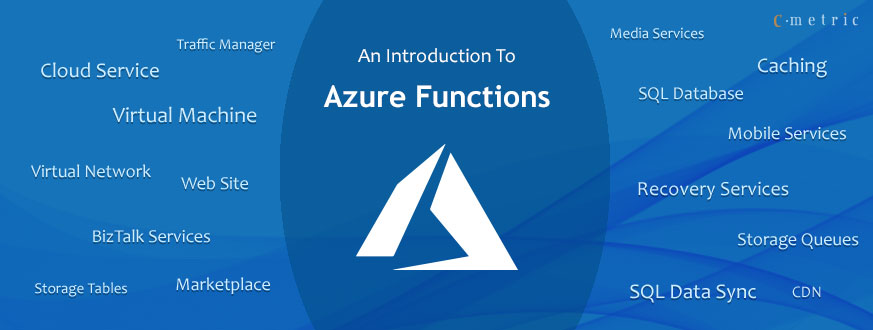Digital transformation is everywhere and is the core of everything in today’s digital world. Those who are not changing the course of action in the present era’s digital requirements are going to remain way behind in the competition.
Digital transformation has paved its way in every industry, and healthcare isn’t an exception. In fact, the outbreak of COVID-19 confirmed one thing, if you’re a medical or healthcare professional, being digitally sound is the only way to survive and grow as telemedicine and remote healthcare become a mainstream solution.
Only digitally sound healthcare service providers will be able to have customer reach and constant service delivery in the current era of the digitized world. While everyone nods in affirmation when we say that digital transformation is essential for the healthcare industry, not everyone talks about the process and procedures to follow. It’s a critical task demanding constant attention.
In this post, we have pondered over the key aspects of embracing digital transformation in healthcare. What should be done and what should be avoided?
Digital Transformation In Healthcare Industry – Let Data Do The Talking
Before we talk about the process and policies to adopt for the digital transformation in healthcare industry, let’s talk about the data that indicate the importance of digital transformation in this industry.
- A YouGov survey revealed that 51% of market players in the Indian healthcare industry considered digital transformation imperative during the outbreak of COVID-19.
- 75% of participants admit to experiencing better service delivery after going through a skilled and planned digital transformation.
- ¾ of the participants confirmed that they had experienced better collaboration, high-end efficiency, and advanced technologies after successful digital transformation.
This is one of the many surveys highlighting digital transformation’s importance in the healthcare industry. The zest of every survey indicates one fact, digital transformation is the need of the hour for the healthcare industry.
What Does It Mean For The Healthcare Industry?
It’s confirmed that players in the healthcare industry can only survive if they are digitally transformed. But what does this term mean?
Digital transformation in the healthcare industry means adopting technologies that support remote healthcare, empowering industry players with new collaboration possibilities, making around-the-clock service delivery possible with the use of advanced tools, making personalized and customized recommendations, and having better access to data by using cloud storage.
The entire digital transformation journey involves replacing outdated software and OS with modern-era OS and tools. It also entails having app support, hospital management software, and cloud capabilities so that the industry player can address the present-day requirements.
The entire idea of digital transformation is based on four pillars:
- Accessibility: Digital transformation is here to improve the accessibility of healthcare providers. It should empower a service provider in a way that it’s capable of delivering its services beyond the four walls of a hospital or clinic. There shouldn’t be any boundaries in accessibility.
- Distributed capabilities: With the merger of in-person and remote healthcare, it’s mandatory to ensure that digital tools empower a healthcare provider in a way that it can provide distributed service. By this term, we mean offering required assistance at the right time. For instance, the transition from remote to in-person care should be tedious if a situation needs in-person care.
- Great resiliency: The digital transformation must be done so that the healthcare provider can meet urgent demands and act wisely.
- Improved efficiency: The digital transformation must be done in a way that healthcare service providers will have no hassles in remaining efficient in every situation. Mundane tasks should be automated, collaboration within and outside the team should be better, and there shouldn’t be any disparities between virtual and in-person service delivery.
Cloud Is The Choice To Make
The goal and expectations one keeps from digital transformations are easy-to-fulfilled only with the help of cloud deployment. Cloud-based tools empower a healthcare provider in endless manners.
Easy installation: Cloud tools are plug-and-play solutions and won’t keep you engaged with lengthy setup and installation. This makes anyone digitally transformed within a fraction of a second.
Quick scalability: Adding or deleting features is so easy with cloud tools that scalability isn’t a tough task to achieve. One can easily increase the storage space with a single click.
Smooth operations: Most cloud-based tools are easy-to-use. They don’t have a complex learning curve that makes them suitable for people of varied technical competency.
Use multicolored for improved innovation: Multi-cloud has empowered healthcare industries so much that organizations will have multiple endpoints to increase operational competency.
Is It So Easy To Embrace Digital Transformation In Healthcare Industry?
We wish digital transformation to be an easy job, but it’s not. The reason is that the process features multiple challenges. For instance:
- The high initial budget is the biggest challenge. With continual usage of digital technology, one end-up saving huge operational costs in the long run. But, it demands huge investments early, which is not possible for everyone.
- Ensuring great technical competency in every user isn’t possible. It’s unrealistic to expect that every team member will be able to handle the tools and technologies with the same ease and perfection. Few might need training that is both time and cost-consuming.
- Ensuring data privacy and security is the biggest challenge for healthcare providers. As they store sensitive personal and health-related information, they are responsible to adopt the best security measures.
- Too much use of technology makes healthcare too mechanical. AI and ML tools will think logically. But, healthcare is an industry where human feelings like compassion, emotions, and understanding are also required. But, it’s not possible if the entire system is automated and in AI tools’ hands.
So, What’s The Way Out?
Well, these challenges shouldn’t impede your digital transformation or discourage your walk on this path. Instead of being terrified by these challenges, one must find a way to combat them. Gladly, there is one. You must choose your digital transformation partner very wisely. With this smart move, you can:
Get customized solutions at an optimized cost. Your partner should be able to understand your primary, secondary, and future digital transformation requirements and suggest solutions as per the allotted budget. Such a partner can invest your money wisely and in tasks with high priority.
Have simple yet effective tools. Technical incompetency is a challenge with pre-built tools. But, a trusted digital transformation partner will be able to proffer you tools that best suit your team’s technical competency. This promotes maximum productivity and less confusion.
Remain compliant and protect data. A seasoned partner will know the best compliances that healthcare industry players have to abide by during their digital transformation journey. Also, it will bring the best data protection tools to your service.
A Collaboration with C-Metric Is Worth Giving A Try
All the above traits of quality technology partners are inherited in the best form by C-Metric. With a team of the industry’s best developers, we pay attention to detail and are equipped with the best technologies; it’s easy to have tools ready to empower your digital transformation journey. You are bound to embark on a seamless and hassle-free digital transformation in healthcare journey with us.















Get in Touch